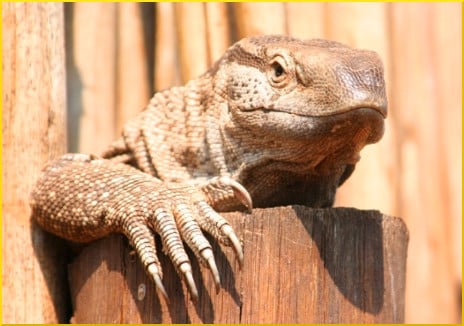
The lizard brain is a persistent little cuss that will do its best to keep a person enslaved to a destructive habit. Yesterday, we looked at some of the ploys it uses to maintain the state of addiction. If it fails, and the person quits, the lizard brain does not give up, but rolls out a whole new arsenal of weapons, in an effort to end the prohibition and return to its preferred lifestyle.
The lizard brain may be primitive, but it is endlessly inventive about planting ideas for the higher brain to elaborate on. It will offer a geographical rationale, like this one suggested by John McC (also known as A. Orange) in his “Famous Last Words” collection:
I could go across the river, over to the other side of town, where no one knows me, and get drunk over there, and nobody over here would ever know.
Then, there are the time-related justifications. “It’s been so long” is a popular one — as if that had anything to do with the reality of addiction. “It’s been so long” can be embroidered and expanded into:
Even if it does cause a little damage, I’ve been off of the stuff for so long that I can afford a little damage now.
If that doesn’t work, the lizard brain has a numerical pitch. Just one night of drinking or one dozen doughnuts won’t make a difference; just one snort of heroin won’t hurt. If a person succumbs to the lure of one shot of whiskey, suddenly another mathematical formula presents itself: A bird can’t fly with only one wing — it takes two, so, better have another.
Acting on suggestions from the insatiable lizard brain, the mind will make negative projections, and cry about how miserable a person’s life will be if he can never, ever eat chocolate-covered bacon again. Conversely, it will plan a positive future, and convince a person that once she gets a few things straightened out, has a steady job, and lives independently, this silly abstinence can end and she will be able to eat all the chocolate-covered bacon she wants.
Like many former addicts, John McC has pointed out how the “addiction monster” poses as a friend, colleague, and confidante. It positions itself as a team-mate, and includes itself with the person in a cozy alliance called “we.” He writes:
We’ve been doing so good for so long, totally abstaining without any cheating whatsoever, it’s time to celebrate.
We don’t have anything left to prove to anybody.
We’ve got it under control now.
An un-addicted person can only marvel at the constellation of excuses founded in a righteous desire for fairness and justice. The “addiction monster” will whisper that you’ve been deprived long enough, and it’s time to be normal again because you deserve to have a regular old good time, just like anybody else. It’s so unfair that you should have to go without, and the fact that you suffer from cravings is the most unfair thing of all.
Here are a couple of fabulously inventive and fancy rationalizations:
Oh well, some experts say that relapsing is a normal part of recovery. I hear that lots of people relapse half a dozen times before they really quit forever. So I still have five relapses to go.
It was easy to quit. So I can mess around a little, and have a few now and then, and it will be okay. Even if I do get re-addicted, I can just easily quit again…
John McC explicitly warns against this last one. Every relapse is an enormous energy drain, and quitting for the second time is “several times harder than the first.” His website, The Lizard Brain Addiction Monster, contains a whole compendium of lizard brain-inspired thoughts, and a link to his nicely formatted printout of “Famous Last Words.”
Your responses and feedback are welcome!
Source: “The Lizard Brain Addiction Monster,” orange-papers.org, undated
Photo via VisualHunt

 FAQs and Media Requests:
FAQs and Media Requests: 











